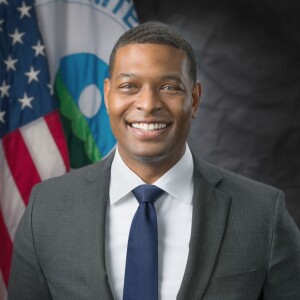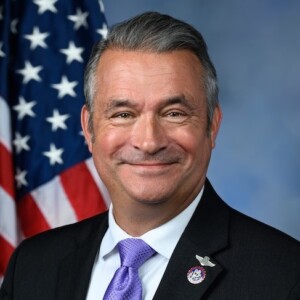Energy, Environment, and Climate: Past Projects
U.S. Offshore Wind Leadership Summit
Facing the potential and expected growth of offshore wind energy development, the Keystone Policy Center partnered with the University of Delaware’s Special Initiative for Offshore Wind to host the U.S. Offshore Wind Leadership Summit in March 2015. The summit, attended by U.S. offshore wind try leaders and their European counterparts, discussed the challenges and opportunities associated with new offshore wind technologies, growing public and private investments in offshore wind, and other emerging issues.
The Keystone Policy Center’s work was instrumental in helping the University of Delaware’s Special Initiative for Offshore Wind’s team to define the agenda; conduct stakeholder interviews; and facilitate the discussions over the course of the two-day meeting. The summit resulted in a platform of critical, near-term strategic actions that the participants agreed to carry forward.
Dark Skies
The Colorado Plateau and adjoining areas of the American Southwest have some of the most pristine, clear, and accessible skies in the developed world. However, the growing proliferation and use of blue-rich and poorly-filtered LED outdoor lighting threatens our abilities to view night skies for scientific, recreational, and cultural purposes — and disrupts important circadian rhythms of humans and other organisms. Learn More
Landscape Conservation Cooperatives
For more than five years, the Keystone Policy Center has worked to develop and promote a series of Landscape Conservation Cooperatives — management-science partnerships for addressing climate change and other stressors at a landscape scale. These ongoing efforts — part of a nationwide U.S. Department of the Interior initiative involving federal, state, tribal, academic, non-governmental, and private sector stakeholders — help strengthen conservation efforts by providing opportunities to develop, access, and share applied science. They also help leverage funding, information, and technical expertise for applied science projects.
The Keystone Policy Center has helped launch four Landscape Conservation Cooperatives since 2010: the Desert, Southern Rockies, Great Plains, and Gulf Coast Prairie. Keystone’s work has included assisting each establish their steering committees and identify science priorities.
Colorado Oil and Gas Task Force
The growth of Colorado oil and gas development — especially along Colorado’s Front Range — presents challenges for Colorado leaders, residents and businesses alike regarding the tension of developing resources while also reducing impacts for residents and respecting local communities. Following a protracted public policy fight, Colorado Governor John Hickenlooper issued an executive order in mid-2014 creating the Colorado Oil and Gas Task Force to find ways to reduce conflicts and suggest ways to improve relationships and propose strategies.
The governor charged the task force, led by the Keystone Policy Center, with finding collaborative ways to balance oil and gas development — one of the most important economic drivers in Colorado — and private mineral right holders’ interests with local residents, public health officials, and conservationists’ concerns.
Tenderfoot Task Force
Summit County, Colo., and the U.S. Forest Service asked the Keystone Policy Center to convene a task force to deliberate and negotiate issues brought forth in the public comment period of the Environmental Assessment for the Tenderfoot Mountain Motorcycle Trail System. The 21-member Tenderfoot Task Force represented all stakeholder groups with an interest in the future of Tenderfoot Mountain (see the group’s final recommendations for a complete list). The task force considered:
- Potential impacts to the environment, wildlife, fisheries and area cultural sites;
- Potential noise impacts to residents’ property values and quality of life;
- Concerns with the accuracy of the EA’s use estimates;
- Concerns with user conflicts and management and development of the trail system; and
- Concerns with wildfire, and education on, and enforcement of, laws and regulations
The Task Force held seven full-day meetings between March and June 2013 and developed a consensus-based set of final recommendations along with an extensive proactive and adaptive management plan. These were submitted to White River National Forest Supervisor Scott Fitzwilliams and will be entered into record as an appendix to the Environmental Assessment.
Moab Master Leasing Plan
Moab is surrounded by some of the most stunning landscapes in Utah and the American Southwest — renowned for their recreation opportunities and potential for oil, gas, and mineral development. In an effort to assess current and future land uses, including energy development, the Bureau of Land Management launched its Moab Master Leasing Plan (MLP) process. The BLM’s planning effort will prepare the MLP, amendments to the Moab and Monticello Resource Management Plans, and an Environmental Impact Statement. The MLP process will provide additional planning and analysis prior to new leasing of oil and gas and potash within the Planning Area. Learn More
South Park Master Leasing Plan
Ahead of the Bureau of Land Management’s South Park Master Leasing Plan (MLP) process, the Keystone Policy Center partnered with the Coalition for the Upper South Platte to host independent workshops regarding the area’s future. The workshops, which convened a diverse group of stakeholders, including ranchers and energy interests, built relationships and trust between the different stakeholders ahead of the planned South Mark MLP. Keystone’s process also created awareness of stakeholder interests and perspectives that may inform leasing decisions on other lands and built knowledge of and access to a common set of data and facts upon which MLP decisions could rely. Learn more
Mule Deer
Facing declines of mule deer populations across the Centennial State, the Colorado Parks and Wildlife worked with the Keystone Policy Center in 2014 to seek input statewide on strategies to confront this problem. The Keystone Policy Center worked with the state to solicit input from sportsmen, landowners, outfitters, biologists, wildlife managers, other state agencies, federal agencies, local elected officials, and other key stakeholders.
Keystone’s extensive outreach and expertise resulted in two reports, one issued in June 2014 reflecting input from seven public meetings and one issued in August 2014 summarizing feedback from a statewide summit on a draft Mule Deer strategy and laying out seven strategic priorities.
Green Products Roundtable
The complexity of “what makes a product green?” and the proliferation of eco-labels and green product claims has created considerable market confusion and, some would argue, an impasse to further progress toward sustainability. In response, several robust efforts have been underway in recent years, seeking to: (1) build the scientific foundation for greening products, (2) assist manufacturers in measuring and communicating their progress, and (3) engage and train buyers on how to use their purchasing power to realize environmental and public health goals. However, the lack of a central, organizing effort to strategically align these efforts toward mutual goals, and to fill key gaps in tools and guidance, reflected a missing link in truly transforming the market toward a more sustainable economy.
In an effort to confront this problem, the Keystone Policy Center facilitated the Green Products Roundtable, a stakeholder group comprised of approximately 35 members representing different perspectives, including manufacturers, retailers, purchasers, distributers, certifiers, and other experts and thought leaders. The five-year dialogue’s work advanced product sustainability by providing leadership and guidance to improve the decision-making capabilities of product manufacturers, institutional buyers, businesses, and consumers. Keystone played an important incubating role for this initiative, enabling it to gain traction and momentum. In 2012 the Green Products Roundtable launched as an independent entity, the Sustainable Purchasing Leadership Council, which focuses on guidance and leadership recognition in sustainable procurement.
EPA State Climate and Energy Technical Forum
Environmental Protection Agency (EPA) Combined Heat and Power (CHP) Partnership Policy Forum
Department of Energy/NREL Collaborative Energy Analysis Workshop
- The improvement of deployment partnerships between industry and government
- Better representation of energy technologies and demand response in energy analysis tools
- Development of better program impact evaluation tools
- Development of better policy analysis tools
- Integration of information at the state and federal levels
Keystone also facilitated a session to explore longer-term energy analysis needs for consideration at future workshops.
Advancing Energy Innovation
With the collaborative support of advisers across the energy policy and technology spectrum, and with funding from the U.S. Department of Energy, the Advancing Energy Innovation Regional Dialogues fostered discussions on these issues at the state and regional level. Keystone’s work helped participants design collaborative win-win strategies that encourage innovation, productivity, and competition, while ensuring that customer and supplier benefits and risks are appropriately balanced and shared.
Nuclear Power Joint Fact-Finding Dialogue
Sustainable Financing of Municipal Recycling
The Keystone Policy Center facilitated a national dialogue convened by the U.S. Environmental Protection Agency in 2010 to identify options for sustainable financing of recycling of packaging material. Representatives of state and local governments, manufacturers and retailers, and environmental and community-based organizations considered a variety of approaches to funding and managing the nation’s recycling system.
Southeast Sustainable Forestry Negotiation
The Keystone Policy Center facilitated efforts to develop key criteria for identifying endangered forests between Georgia-Pacific LLC, Rainforest Action Network, Natural Resources Defense Council, and the Dogwood Alliance. These criteria, developed in 2009, will help Georgia-Pacific identify and map endangered forests in its key supply regions. Keystone also facilitated a dialogue among the parties to identify natural hardwood forests, which became an important building block to Georgia-Pacific’s final definition of natural hardwoods. In addition, Keystone facilitated the selection of independent scientists and their input into both the endangered forest and natural hardwood deliberations.
I-70 Collaborative Process
The Keystone Policy Center helped stakeholders build consensus in 2011 on a recommended preferred alternative for the I-70 corridor from C-470 to Glenwood in order that the Colorado Department of Transportation could complete the I-70 Mountain Corridor Programmatic Environmental Impact Statement (PEIS) and move forward with a record of decision. The Keystone Policy Center convened a stakeholder group that represented all communities and interest groups along the corridor.









